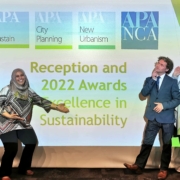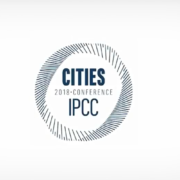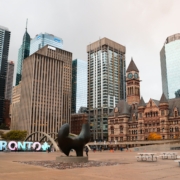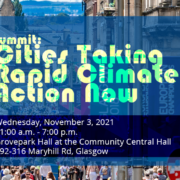How One City De-Polarized Climate Action
Since Mayor Don Iveson’s election in 2013, Edmonton has developed one of the most ambitious climate action plans in Canada. The City plans to double its population while achieving carbon neutrality by 2050 and, to our knowledge, is the first municipality in North America to integrate a carbon budget into its official plan, setting a cap on how much the community can emit, ever.
Edmonton has also taken steps to galvanize global climate action. In 2018, Iveson had a summit with mayors from around the world that led to the Edmonton Declaration, a call-to-action for mayors to take urgent action to limit global warming to 1.5 degrees Celsius. Thousands of cities and authorities, including Indigenous groups, signed on.
“It’s recognition that we’re part of an international movement of local governments who’ve been leading on this for decades,” Iveson said.
Earlier this year, SSG had a chance to sit down with Edmonton Mayor Don Iveson and talk about his climate action legacy (Iveson steps down after the municipal election on October 18). We spoke to him about what motivates him to take action, why Edmonton developed a carbon budget, and how the City built public support for climate action.
“Public engagement is the most important dimension of this,” he told us, noting that the City invited young people to speak at meetings on climate change and help decrease divisions. Their presence “makes it hard for decision makers to play the division of wedge politics in front of kids who will suffer for that,” Iveson explained.
The City also created a citizens’ advisory committee of locals with relevant expertise who gave advice to the City and Council on their climate action plan, in addition to bringing together a Citizens’ Panel made up of a diverse and representative group of Edmontonians. The panel deliberated on how the City should respond to energy and climate challenges, and provided recommendations to the City.
Most of those skeptical of the science came around to supporting climate action, noting the economic and health benefits of climate action, such as stable electricity prices and cleaner air, Iveson explained. “We need to be anti-polarizers.”
Watch the full interview above.












